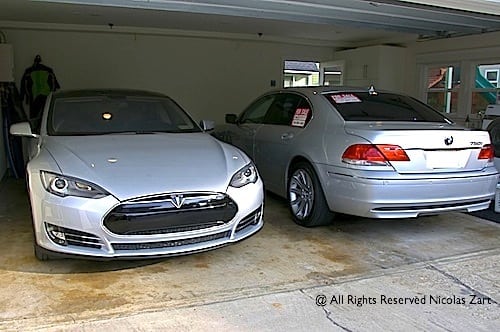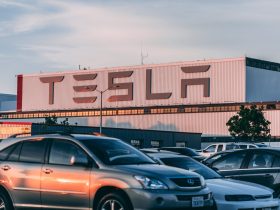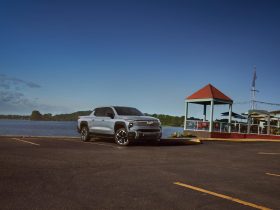When carmakers fully gauge the Tesla threat, it will be too late. Another industry that hasn’t grasped the far reaching consequences of Tesla’s $5 billion Giga battery factory are utilities. There are more industries equally in the dark.
When we think of Tesla, we think of sexy electric cars, but that is just the tip of the iceberg. If it won me over from a world of 1930s Alfa Romeo and Bugatti, straight into the 22nd Century, there is something to be said about this modern company. But understanding the full scope of this highly disruptive Californian startup is beyond what mainstream carmakers can offer, utilities and battery manufacturers for a simple reason. Tesla Motors is a modern company, operating on futuristic values, with a modern business model, whereas the latter are not. Tesla was borne out of today’s necessity, others were borne out of yesterday’s.
Tesla is NOT a carmaker.
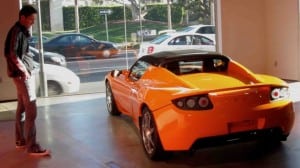
The sooner carmakers realize Tesla Motors is NOT a carmaker, the sooner they can back to work. Traditional carmakers are scratching their heads trying to understand how to compete with Tesla. They can’t, will not, and won’t be able to until they change their business models away from automobile manufacturing to technology enablers. That is a very difficult transition for any company to do anchored in century old manufacturing practices. GM, Ford, Toyota make piston engine cars, with planned obsolescence and regular maintenance checks, where they make the real profits. Electric vehicles (EV) by definition can’t rely on that bread and butter. Tesla understood this and quickly diversified well beyond the scope of building cars.
Tesla the energy company.
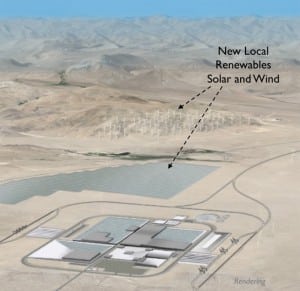
It became very clear Tesla Motors understood the above mentioned the moment point when they decided to build the charging infrastructure for their EVs. In and of itself, it was nothing special, but the fact Tesla owners could charge for free with part solar energy should have raised serious red flags for carmakers and utilities. The final nail in the coffin for carmakers’ eventual competition dreams was the swapping battery capacity of the Model S. This shoots out the door any notion of range anxiety, and again threatens utilities by circumventing them.
The $5 billion dollar question is, will utilities take this opportunity to learn from carmaker’s past mistakes and join Tesla? Most likely not. They have done little to upgrade our aging grid in the past, short of maintenance. We have seen no real vision from them in past decades. This well-entrenched industry shows signs of one day going down kicking and screaming, while taking in tax payer money to “bail them out”.
Apple needs Tesla Motors more than Tesla.
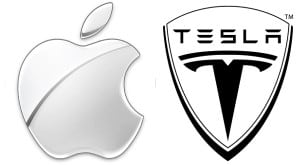
That is such a given, the technology industry has a slight chance of getting it, but will be able to come on board with less pain than others. Apple knows it and rightfully acted on it. Apple won’t build an EV, nor will it purchase Tesla Motors. Elon Musk is much too smart to let go of the golden goose. Apple knows it needs to buff up its sagging innovator image. 90% of its jobs are abroad, having batteries “Made in the USA” means a chance to redeem itself.
Tesla’s $5 billion battery manufacturing plant threatens utilities.
Tesla Motors has been one to two steps in front of everyone, the technology industry by using commodity lithium-ion batteries, building high performance vehicles with said batteries with carmakers, and now tackles the inertia of utilities with gigantic battery plant.
The Giga factory will not only mass produce batteries, which will lower lithium battery prices, but will make a Gen II $30,000 EV with a 200 mile range a possibility. Next, it will use alternative energy at an industrial rate, which will help lower the price of solar panels and wind turbines. It will then be able to use this plant to recycle batteries and use it as a local energy storage, selling it to either utilities, if they wake up in time, or start their own mini-smart grid, thus removing them from the equation.
Get it? Not matter how those industries react, Elon Musk has already moved his chess pawns so far out, they will either need to reinvent themselves, play well with Tesla Motors, or go down screaming, engulfing millions of tax paying money. It is much more disruptive than any of these traditional businesses can imagine, nor can they compete against a modern, efficient business model. Tesla Motors is not a carmaker, a utility or anything traditional. It is a lifestyle enabler and plays well beyond the expert field onto the mastering of global strategic game.


